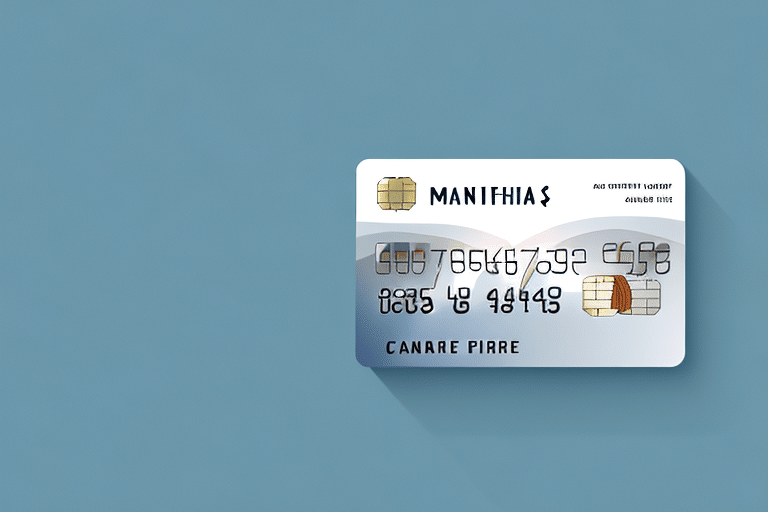What Is a Surcharge Fee? Understanding the Basics
If you're a frequent shopper or traveler, you may have come across surcharge fees at some point. But what exactly are surcharge fees, and why do businesses use them? In this article, we'll explore the basics of surcharge fees, their history, legal landscape, impact on consumers, and much more.
Why Do Businesses Charge Surcharge Fees?
Businesses charge surcharge fees to offset the costs associated with processing credit card payments. When a customer uses a credit card to make a purchase, the business incurs a fee from the card issuer for processing the transaction. These fees, often ranging from 1.5% to 3.5% of the transaction amount, can significantly impact a business's profit margins over time. To recoup some of these costs, businesses may add a surcharge fee to the final cost of a transaction. This practice allows businesses to continue offering the convenience of credit card payments without sacrificing their profitability.
However, it is important to note that surcharge fees are not permitted in all states and countries. Some jurisdictions have laws prohibiting businesses from charging extra for credit card usage. In such cases, businesses must explore alternative methods to cover processing costs, such as increasing overall prices or negotiating lower fees with card issuers.
Additionally, some businesses offer discounts to customers who pay with cash or debit cards instead of credit cards. This strategy encourages the use of payment methods that are less costly for the business while still providing customers with the convenience of electronic payments. Ultimately, the decision to charge surcharge fees or offer discounts depends on various factors, including the types of products or services offered and customer preferences.
Different Types of Surcharge Fees
Credit Card Surcharges
The most common type of surcharge is the credit card surcharge, applied to transactions made with credit cards. This fee helps businesses cover the processing costs incurred by credit card companies.
Debit Card Surcharges
Some businesses also charge a debit card surcharge for transactions made with debit cards. While debit cards typically have lower fees than credit cards, businesses may still pass on a portion of these costs to consumers.
Fuel Surcharges
Fuel surcharges are added to the cost of fuel for transportation and shipping companies to offset rising fuel prices. This ensures that companies can maintain their service levels despite fluctuating fuel costs.
Insurance Surcharges
Insurance companies may impose surcharges on high-risk drivers or those with poor driving records. These fees help cover the increased risk associated with insuring these individuals.
Convenience Fees
Convenience fees are typically added to online or phone transactions to cover the costs of processing payments through these channels. They ensure that businesses can offer multiple payment options without incurring excessive costs.
Foreign Transaction Fees
Foreign transaction fees are applied to purchases made in a different currency or country. These fees cover the costs of converting currencies and processing transactions internationally.
It's important to read the fine print and understand all fees associated with a transaction before making a purchase.
The History of Surcharge Fees
Surcharge fees have been in existence for decades, but their usage has expanded significantly in recent years. In many countries, surcharging was historically banned by law until recent legislative changes deregulated the market. For instance, in the United States, there is no nationwide ban on surcharging, but states like California and New York have specific regulations governing the practice.
Internationally, countries such as Australia and the United Kingdom allow consumers to be charged a surcharge for using credit cards, with fees often capped at a certain percentage of the transaction amount. The evolution of surcharge fees has been influenced by the increasing costs of credit card processing and the need for businesses to manage these expenses effectively.
The use of surcharge fees remains a controversial topic. Proponents argue that it is a necessary measure for businesses to cover processing costs, while opponents see it as a way to unfairly burden consumers. In response to this debate, some businesses have started offering discounts for cash or debit card payments instead of implementing surcharges.
Despite the controversy, surcharge fees continue to be prevalent in various industries, including travel, hospitality, and retail. As technology advances, new payment options may emerge, potentially changing how surcharge fees are applied and regulated in the future.
Understanding the Legal Landscape of Surcharge Fees
Surcharging is legal in the United States, but it is subject to regulation. The Dodd-Frank Wall Street Reform and Consumer Protection Act allows businesses to offer discounts for cash or check payments but prohibits charging a higher price for credit card transactions in some contexts. Additionally, individual states may have their own laws regarding surcharging that businesses must adhere to.
It's important to note that surcharging is typically not allowed for debit cards and prepaid cards, as these are considered forms of electronic cash. However, surcharging is permitted for credit cards issued by major companies like Visa and Mastercard, provided businesses comply with relevant regulations.
Transparency is crucial when implementing surcharge fees. Businesses must clearly disclose the surcharge amount to customers before completing the transaction, and the fee cannot exceed the actual cost of processing the credit card transaction. Non-compliance with these regulations can lead to legal repercussions and fines.
How Do Surcharge Fees Affect Consumers?
For consumers, surcharge fees can be a source of frustration, especially for those who frequently use credit cards for purchases. These fees can add up quickly, increasing the overall cost of transactions. However, there are strategies consumers can employ to minimize or avoid surcharge fees:
- Choose Businesses That Don’t Charge Surcharges: Some businesses choose not to implement surcharges, allowing customers to use credit cards without additional fees.
- Use Cash or Checks: Paying with cash or checks can help you avoid surcharge fees altogether.
- Select Credit Cards with Lower Transaction Fees: Some credit cards have lower processing fees, potentially reducing or eliminating surcharge fees.
- Negotiate with Merchants: Asking merchants to waive surcharge fees, especially if you are a loyal customer, can sometimes be effective.
It's also important to be aware of state laws regarding surcharge fees. Some states prohibit surcharges on debit card transactions, while others may have broader restrictions on credit card surcharges. Understanding your state's regulations can help you make informed payment choices.
Strategies for Avoiding Surcharge Fees
If you want to avoid surcharge fees, consider the following strategies:
Use Cash or Checks
Many businesses do not impose surcharges for payments made with cash or checks. Utilizing these payment methods can help you steer clear of additional fees.
Choose Low-Fee Credit Cards
Selecting a credit card with lower transaction fees can result in reduced or no surcharge fees from merchants. Research and compare different credit cards to find one that offers favorable terms.
Opt for Debit Cards
Using a debit card can be a viable alternative, as these cards are linked directly to your bank account and often do not incur surcharge fees. However, be aware that some businesses may still charge a flat fee for debit card transactions.
Utilize No Foreign Transaction Fee Cards
If you frequently travel abroad, consider obtaining a credit card that does not charge foreign transaction fees. These fees can add up quickly during international travel, so a no-fee card can save you money in the long run.
The Pros and Cons of Implementing Surcharge Fees
While surcharge fees can help businesses offset the costs of credit card transactions, there are both advantages and disadvantages to consider:
Pros
- Cost Recovery: Surcharges help businesses recover the fees associated with credit card processing.
- Maintained Profit Margins: By passing on some costs to customers, businesses can preserve their profit margins.
- Encourages Alternative Payment Methods: Surcharges can incentivize customers to use more cost-effective payment methods like cash or debit cards.
Cons
- Customer Dissatisfaction: Additional fees can frustrate customers, potentially driving them to competitors.
- Complexity in Pricing: Implementing surcharges can complicate the pricing structure, making it harder for customers to understand the total cost.
- Legal Compliance: Businesses must navigate various laws and regulations, which can be time-consuming and costly.
Comparing Surcharge Fees to Other Transaction Costs
Surcharge fees are just one of the several costs associated with credit card transactions. Businesses also incur interchange fees, which are paid to the credit card issuer and can be a significant expense. Interchange fees typically range from 1.5% to 3.5% of the transaction amount, depending on the type of card and the nature of the transaction.
When considering whether to implement surcharge fees, businesses must evaluate all associated costs, including interchange fees, processing fees, and potential losses from customer dissatisfaction. A comprehensive analysis helps determine whether surcharging is the most effective way to manage transaction costs.
How to Calculate and Report Surcharge Fees Accurately
If you decide to implement surcharge fees, it's essential to calculate and report them accurately to ensure compliance and maintain transparency with customers:
Calculating Surcharge Fees
- Determine Actual Processing Costs: Calculate the exact fees your business incurs for processing credit card transactions.
- Set the Surcharge Amount: The surcharge should not exceed the actual processing costs. It is typically set as a percentage of the transaction amount.
Reporting Surcharge Fees
- Clear Disclosure: Clearly inform customers about the surcharge before completing the transaction. This can be done through signage, receipts, or online disclosures.
- Receipt Documentation: Ensure that surcharge fees are itemized separately on receipts and other transaction documents.
- Compliance with Regulations: Adhere to state and local laws regarding surcharge disclosures and limits to avoid legal issues.
Accurate calculation and transparent reporting of surcharge fees help maintain customer trust and ensure legal compliance.
Recent Developments in the World of Surcharge Fees
Surcharge fees remain a dynamic aspect of the business world, with ongoing legal challenges and regulatory changes influencing their application. Recently, several states in the U.S. have revisited their stance on surcharging, leading to new laws and guidelines that businesses must follow.
Moreover, major credit card companies like Visa and Mastercard have updated their rules to simplify the surcharge implementation process for businesses. These changes aim to make it easier for businesses to add surcharges while ensuring that customers are adequately informed about additional fees.
Technological advancements in payment processing may also impact surcharge fees. Innovations such as mobile payments and digital wallets could alter the cost structure of transactions, potentially reducing the need for surcharges or introducing new types of fees.
Balancing Customer Service with Profit Margins through Surcharges
The decision to implement surcharge fees involves balancing customer satisfaction with the need to maintain profitable margins. Businesses must consider the potential impact on customer loyalty and overall satisfaction when deciding whether to add surcharge fees.
By carefully evaluating the pros and cons of surcharging, understanding the legal landscape, and implementing transparent fee structures, businesses can make informed decisions that support both their financial health and customer relationships.
The Future of Surcharge Fees: Trends and Predictions
Looking ahead, the landscape of surcharge fees may be influenced by several factors:
- Increasing Credit Card Processing Fees: As processing fees rise, more businesses may adopt surcharge fees to manage costs.
- Consumer Resistance: Customers may become more resistant to additional fees, leading businesses to seek alternative cost-reduction strategies.
- Emerging Payment Technologies: New payment methods could change the cost dynamics of transactions, potentially reducing the reliance on surcharge fees.
- Regulatory Changes: Ongoing legal developments may further restrict or modify the use of surcharge fees.
Only time will reveal how these trends will shape the future of surcharge fees.
The Ethics of Charging Surcharges: Debates and Controversies
The practice of charging surcharge fees raises several ethical questions:
- Fairness to Consumers: Critics argue that surcharging forces customers to pay extra for using credit cards, which many view as a basic payment method.
- Transparency: Ethically, businesses must be transparent about surcharges to ensure that customers are fully aware of additional costs.
- Alternatives to Surcharging: Some believe that businesses should absorb processing costs or explore other pricing strategies instead of passing fees onto customers.
- Economic Equity: Surcharging may disproportionately affect lower-income consumers who rely more on credit cards for purchases.
These ethical considerations contribute to the ongoing debate surrounding surcharge fees and their place in modern commerce.
Understanding Merchant Agreements and Their Impact on Surcharges
Merchant agreements play a crucial role in determining whether a business can implement surcharge fees. These agreements, established between businesses and payment processors, outline the terms and conditions for processing credit card transactions.
Key aspects of merchant agreements that impact surcharges include:
- Permitted Fee Structures: Some agreements may explicitly allow or prohibit surcharge fees.
- Documentation Requirements: Agreements may require specific documentation or reporting practices for surcharge fees.
- Fee Caps: There may be limits on the percentage or amount that can be charged as a surcharge.
Businesses must carefully review their merchant agreements to ensure compliance when implementing surcharge fees. Failure to adhere to these agreements can result in penalties or the termination of payment processing services.
Overall, surcharge fees are a complex issue with multiple factors to consider. By understanding the basics of surcharge fees, the legal landscape, the impact on consumers, and the intricacies of merchant agreements, businesses can make informed decisions about whether to implement surcharge fees and how to do so effectively and transparently.




















